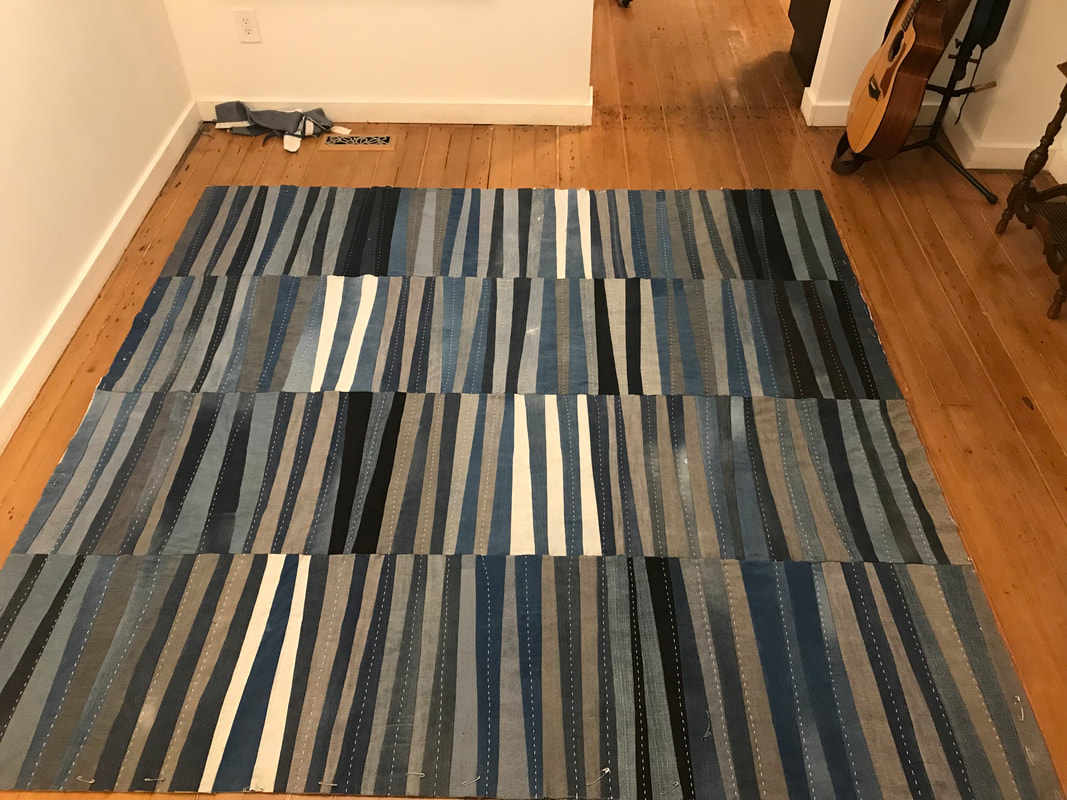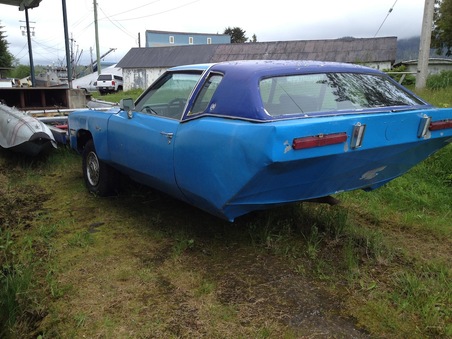
It's the kind of passing sight that makes a city girl demand that the car we're in be stopped and reversed. Now. Because even though I had no idea what I was looking at, I knew that this was another fine example of one of my favourite truisms, "Necessity is the mother of invention." Photos must be snapped so someone who knows about these things could explain.
I found just the guy, a cousin-in-law. He knew the owner of this curious object well. (It's a small town.) "Oh, that's in Seal Cove," he said. His buddy needed to be able to tow his... (I want to say seaplane here, but that might not be right)... out of the harbour, and this Caddy, with its front-wheel drive, was just the jalopy for the job. But how does it stay up, with only two wheels?, I asked (and then again, not quite getting it). It was finally established that some metal bits forged to the front end provide enough counter-weight for the thing to balance on two wheels. An engineering feat!
But what I really liked about this innovation was the extra effort the inventor made to make the beaching gear more, uh, seemly, I guess: the retrofitted tail lights; the back-end paint job that tied it all together. For some reason it reminded me of the stump of a leg; you know some vital working parts are missing but it's heeled over nicely.
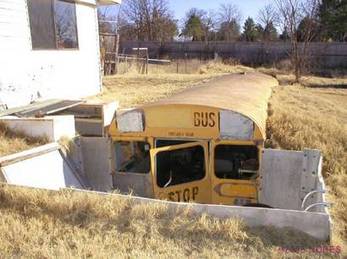
There is a certain soulfulness in these intriguing/peculiar objects that squeeze into existence between the tight parameters of lack of money or access and a pressing need. This school bus re-purposed as an underground... (tornado shelter? food cellar?) also packs a visual punch.
| I'm intrigued by the happy accidents that can turn a necessary invention into an art object or an artwork into a functional object after the fact. On a grand scale it leads to some of the most enduring, visually interesting cities, like the narrow labyrinth of streets of Tokyo that trace terraced rice fields or the watery thoroughfares of Venice. This slow, organic development of an urban landscape is at odds with the speculative profit-driven mega developments currently rapidly changing my city's landscape. But our need to negotiate these monolithic structures will result, over time, in inventions that contribute to an increasingly vibrant culture. We get glimpses of that with every passing pedaller working for Shift: Urban Cargo Delivery here in Vancouver, or as far as Bangkok's streets teeming with ever-advancing Tuk-tuks. Innovating out of necessity creates human connections, from one guy's beaching gear in a sleepy cove outside Prince Rupert, B.C. to corporate shifts on the streets of Paris. (Take a video ride-along below:) |

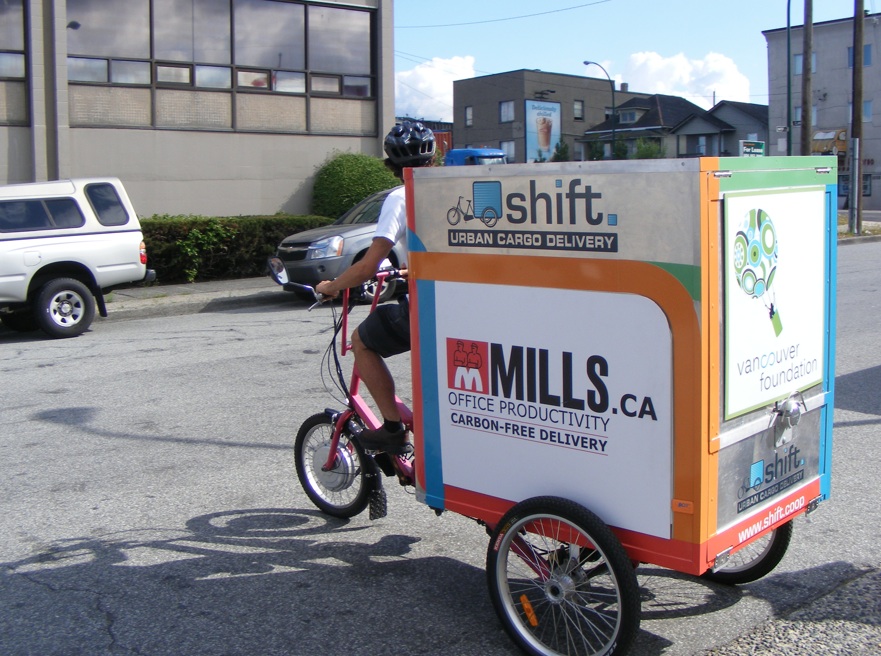
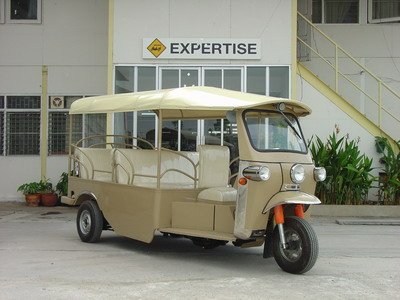
 RSS Feed
RSS Feed

